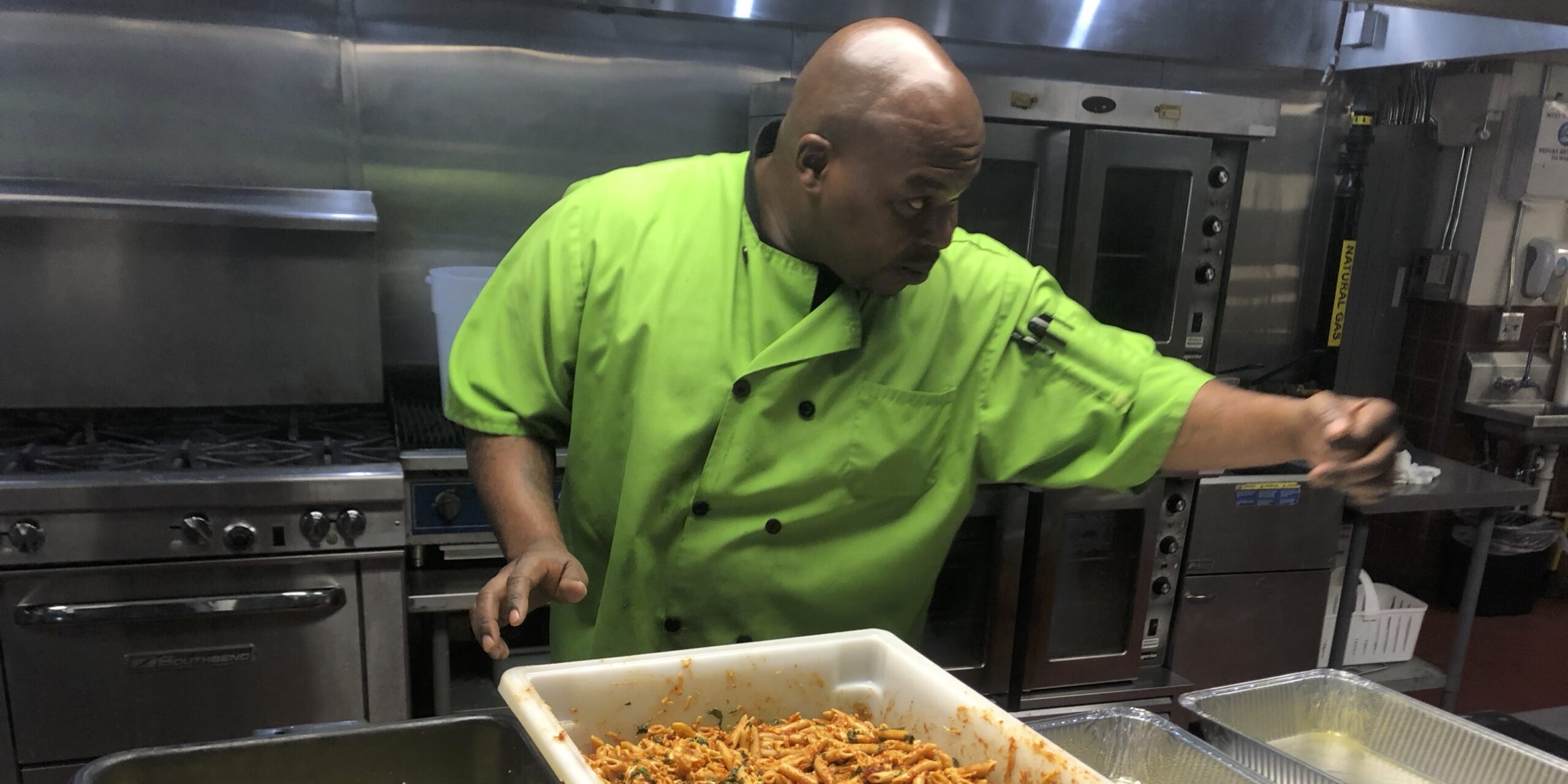ASAP likes to share the stories of people who help us fulfill our mission. This month we’re talking to Kikkoman Shaw, executive chef for Equal Plates Project (formerly We Give a Share). The organization began during the pandemic as a way to support farmers with diminished sales outlets and provide community members in need with freshly prepared meals. The nonprofit rebranded as Equal Plates Project earlier this month, reaffirming its mission to shift the paradigm of food sharing. Kikkoman and his team at Southside Kitchen prepare scratch-made meals for vulnerable communities, charter schools, and other groups who face barriers to quality food access. They’ve also launched a catering division—which provided a fantastic meal for ASAP’s Agritourism Workshop at Creasman Farms on Aug. 23. They continue to source top-quality products form local farms with the belief that the first step toward making all plates equal is paying farmers fairly.
Tell me about the work you’re doing now with Equal Plates Project.
We were feeding people in housing. We started out with like 550-something meals. People needed food. Now we’re transitioning into schools, and working with Food Connection again. Right now we’ve got it at 200 and something meals in schools, but that’s just for this first week. It’s going to go up.
Now, with our catering, when you hire us for an event, every plate you buy means we get to send one to people living in housing for free.
What are some of the meals you’re cooking right now?
Pasta and bolognese, frittatas with spinach, lemon-herb chicken, rice pilaf, squash casserole, beets and apple salad, kale salads, potato salad, watermelon and arugula salad. I did cucumber sticks and zucchini sticks with creamy lemon dip. Everything we cook is either from a local farm, like Gaining Ground Farm, or a local producer. Today I did a trout pasta salad and the trout came from Sunburst Trout. The cheese in my lasagna was from Looking Glass Creamery.
As a chef, what are some of the benefits of working directly with farmers?
Personally I love everything I put my hands on, because I get to turn it into my own masterpiece. I get to offer these kids and the people in housing healthy meals. You would have to go downtown and spend $30-40 to eat that same food, but with us you’re getting it for a low cost or free.
They can be really picky eaters, so if I can take something and turn it into something they will enjoy and like, that’s a wonderful feeling. Their palates are not used to eating like this, but now that they’re getting it, it’s changing their outlook. Their minds were kind of closed off to certain foods they would not touch. But now they’re loving it. Even with the kids—it’s something new, but it’s tasty, so they’ll take to it.
For me, it’s a good way to give back. The people who are in housing came from the same situation I came from. That’s why I stay and why I this work is more meaningful for me. I’ve had other opportunities come up. But I get to see people who are the same color as me getting fed for free the same food people pay $30-40 for. That’s a way of giving back after all the havoc I caused in the community when I was there.
Read more about Equal Plates Project in a recent article in the Asheville Citizen Times.

